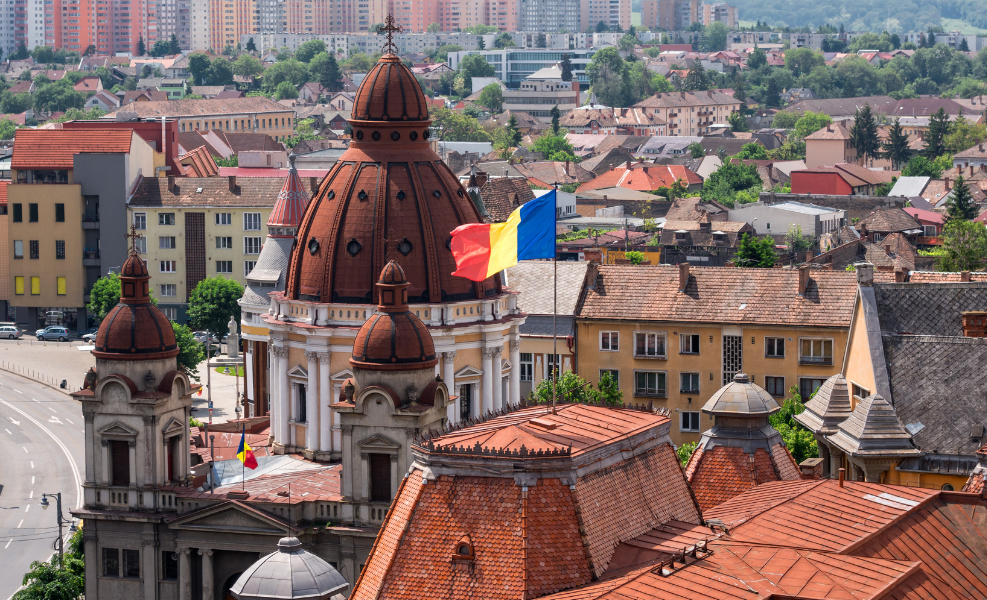
Gambling reforms continue to be proposed to the newly assembled coalition government of Romania.
On Friday, Cseke Attila, the Minister of Public Development and Administration, announced that he will propose that local authorities have direct control to authorise or refuse gambling localities.
The Minister believes that his proposal should form part of the President’s new strategy for the economic development of Romania’s rural towns and provinces.
The new proposal would grant city halls the right to decide whether to approve gambling activities in their jurisdiction. If permitted, local authorities will also have the power to determine where such activities are located and to impose a special annual tax on licensed operators.
According to Attila, this tax would be unrestricted in scope: “We will not propose limits for the annual tax – it will be up to the city hall to decide.”
The reforms are a central feature of a broader program by Romania’s pro-EU Social Democrat coalition to address the growing economic disparity between cities and rural towns. The coalition’s infrastructure-driven approach is focused on rewarding communities that can responsibly manage development and generate new forms of public revenue. Under the proposed legislation, towns that approve gambling activities can retain revenue through a localised gambling tax.
“Local communities should have the right to decide if they want gambling, and if so, to benefit from it directly,” Attila stated, describing the initiative as both a regulatory and economic development tool.
The reform aims to empower rural municipalities to determine whether gambling aligns with their social interests, while also providing a new financial lever to invest in public services.
Concerns over rising rates of problem gambling in disadvantaged rural communities previously led to national-level intervention. In one of his final acts in office, former Prime Minister Marcel Ciolacu authorised the executive order known as Legea Păcănelelor (The “Pannel Law”), which banned slot machines and betting shops from operating in towns with fewer than 15,000 inhabitants.
The order reflected growing public pressure to protect vulnerable communities from the social harms linked to gambling expansion.
Meanwhile, sweeping reforms are also being prepared at the national level. Upon forming the government, Finance Minister Alexandru Nazare announced that Romania would undertake a comprehensive review of its gambling tax regime.
This includes the introduction of a new tax scale on both the income of gambling licence holders and customer winnings. Nazare believes that such reforms could raise more than €1bn ($1.1 bn) annually in additional revenue.
The forthcoming legislation marks what will be Romania’s sixth revision of its gambling tax framework in 2018, underscoring the complexity and volatility of regulating the sector.
In parallel, scrutiny of the gambling sector’s governance continues to mount. The current regulator, ONJN (National Office for Gambling), faces pressure from its coalition partner, USR, which argues that oversight should be transferred to a newly created agency under the Ministry of Finance. USR has also proposed that, during a transition period, customer gambling spend should be capped at 10% of individual income.
Despite the array of reforms under discussion, the government has so far agreed to move forward with only one immediate legislative change: the introduction of uniform federal rules on gambling self-exclusion, which all licensed operators will be required to implement.
A transitional period of six months will be granted to gambling operators already active in localities, during which they must reapply for permission from local authorities. Without such approval, existing venues will be forced to cease operations.
The proposed decentralisation of gambling controls is expected to form part of the second fiscal reform package currently under development. Prime Minister Ilie Bolojan has confirmed that a decision on adoption will be made by the end of July.
“In the next week and the week after… a decision will be made in the coalition on how these packages will be adopted from a legal point of view,” he said.